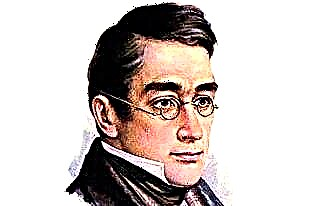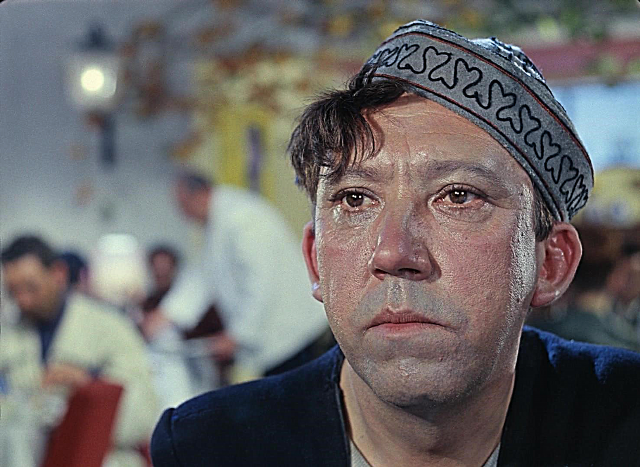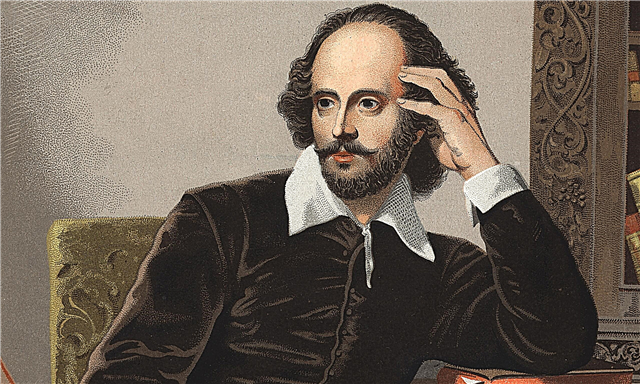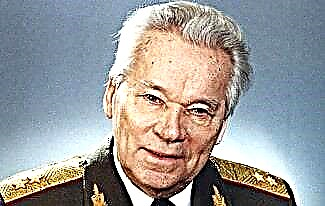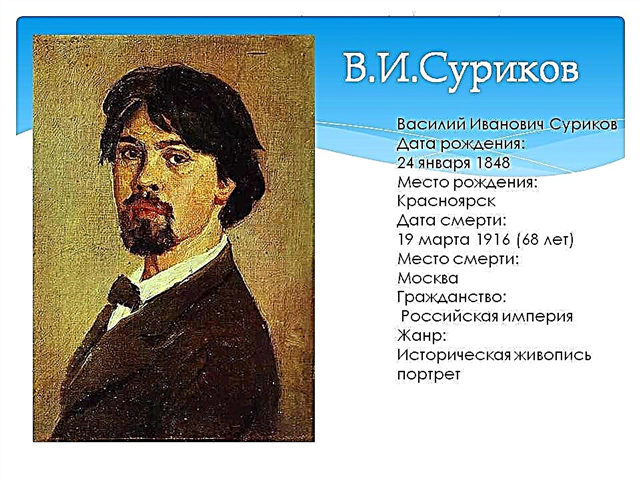Petr Yakovlevich Halperin (1902-1988) - Soviet psychologist, professor and Honored Scientist of the RSFSR. Doctor of Pedagogical Sciences.
There are many interesting facts in Halperin's biography, which we will discuss in this article.
So, before you is a short biography of Peter Halperin.

Halperin's biography
Pyotr Halperin was born on October 2, 1902 in Tambov. He grew up and was brought up in the family of a neurosurgeon and otolaryngologist Yakov Halperin. He had a brother Theodore and a sister Pauline.
Childhood and youth
The first tragedy in the biography of the future psychologist occurred in adolescence, when his mother was hit and killed by a car. Peter suffered the death of his mother very hard, for whom he felt special affection.
As a result, the head of the family remarried. Fortunately, the stepmother managed to find an approach to both Peter and other children of her husband. Halperin studied well in the gymnasium, devoting a lot of time to reading books.

Even then, the young man began to show interest in philosophy, in connection with which he began to attend the corresponding circle. It is worth noting that his father encouraged him to seriously engage in medicine and follow in his footsteps.
This led to the fact that, after receiving a certificate, Halperin successfully passed the exams at the Kharkov Medical Institute. He deeply researched psychoneurology and studied the effect of hypnosis on fluctuations in digestive leukocytosis, to which he later devoted his work.
Having become a certified specialist, Pyotr Halperin began working in a center for drug addicts. It was then that he came to the conclusion that metabolic disorders are the basis of addictions.
At the age of 26, the young scientist was offered to work in a laboratory at the Ukrainian Psychoneurological Institute, where he met the psychologist and philosopher Alexei Leontiev.
Psychology
Pyotr Halperin was an active member of the Kharkov psychological group, which was headed by Leontyev. At this time of his biography, he investigated the difference between human tools and animal aids, to which he dedicated his Ph.D. thesis in 1937.
At the beginning of World War II (1941-1945) Galperin and his colleagues were evacuated to Tyumen, where he stayed for about 2 years. After that, at the invitation of the same Leontyev, he moved to the Sverdlovsk region.
Here Pyotr Yakovlevich worked in the center for recovery from bullet wounds. He managed to substantiate the theory that the patient's motor functions resume faster if they are conditioned by meaningful activity.
For example, it will be easier for the patient to move his hand to the side to pick up an object than to do it aimlessly. As a result, Halperin's achievements were reflected in physiotherapy exercises. By that time, he had become the author of the work "On Attitude in Thinking" (1941).
Later, the man settled in Moscow, where he worked at the famous Moscow State University. He was listed at the Faculty of Philosophy and was an assistant professor at the Department of Psychology. Here he was engaged in teaching since 1947.
It was in the capital that Pyotr Halperin began to develop the theory of the gradual formation of mental actions, which brought him great fame and recognition. The meaning of the theory boils down to the fact that human thinking develops in the course of interaction with objects.
The scientist noted several stages necessary for the external action to be assimilated and become internal - it was brought to automatism and performed unconsciously.

And although Halperin's ideas provoked mixed reactions among his colleagues, they found practical application in improving the educational process. An interesting fact is that on the basis of the provisions of this theory, his followers were able to carry out a lot of applied projects to improve the content and the learning process.
Aspects of his theory, Peter Halperin described in detail in the work "Introduction to Psychology", which became a recognized contribution to psychology. In subsequent years of his biography, he continued to work at Moscow State University.
In 1965, the psychologist became a doctor of pedagogical sciences, and a couple of years later he was awarded the degree of professor. In 1978 he published the book "Actual problems of developmental psychology." After 2 years, the man was already an Honored Scientist of the RSFSR.
One of the last works of Halperin, published during his lifetime, was devoted to children and was called - "Methods of teaching and mental development of the child."
Personal life
The wife of Pyotr Halperin was Tamara Meerson, whom he knew from school. The couple lived a long and happy life together. In this marriage, they had a girl named Sofia. It is curious that it was Tamara that her husband dedicated the book "Introduction to Psychology".
Death
Peter Halperin died on March 25, 1988 at the age of 85. Poor health was the cause of his death.

